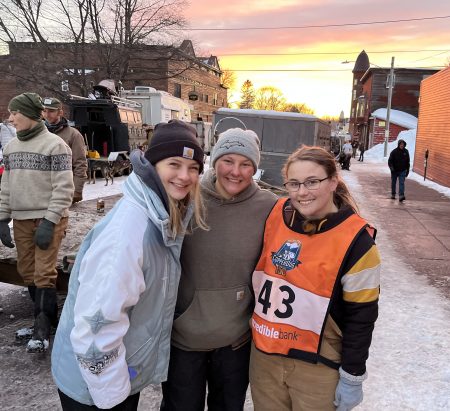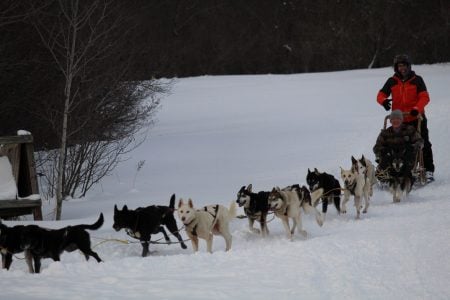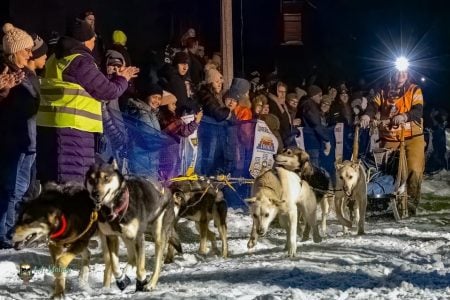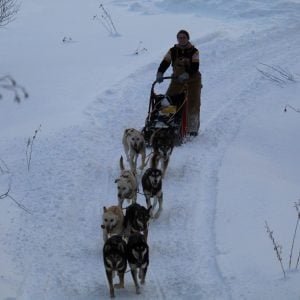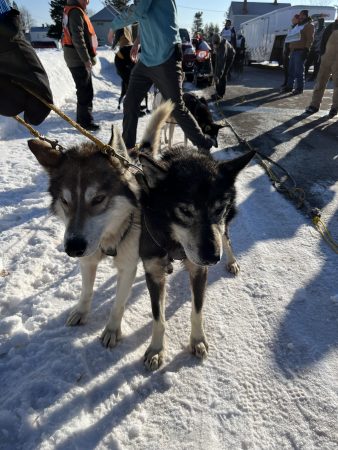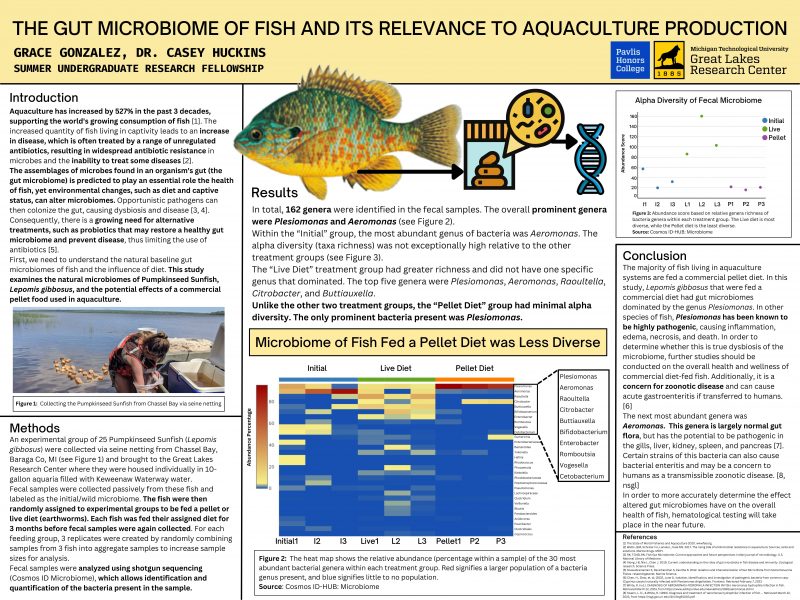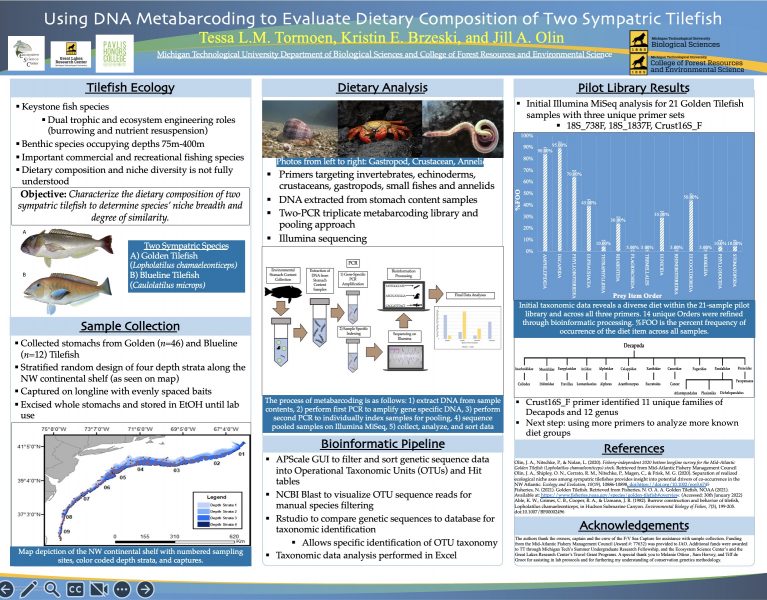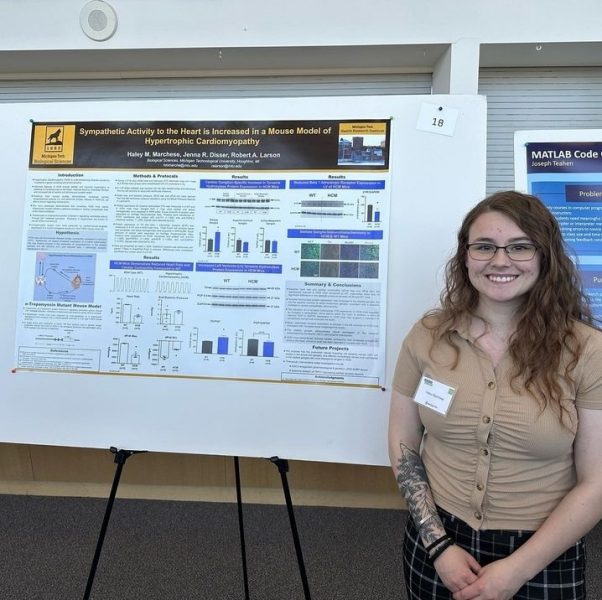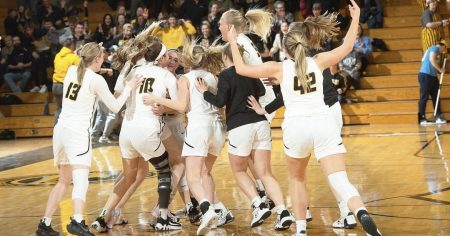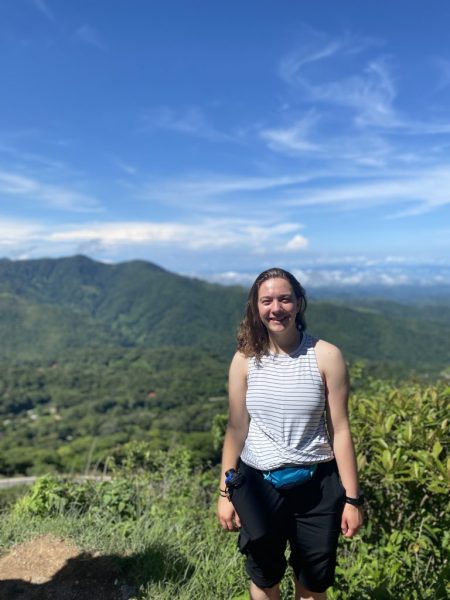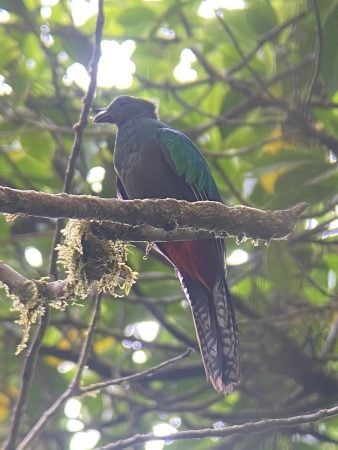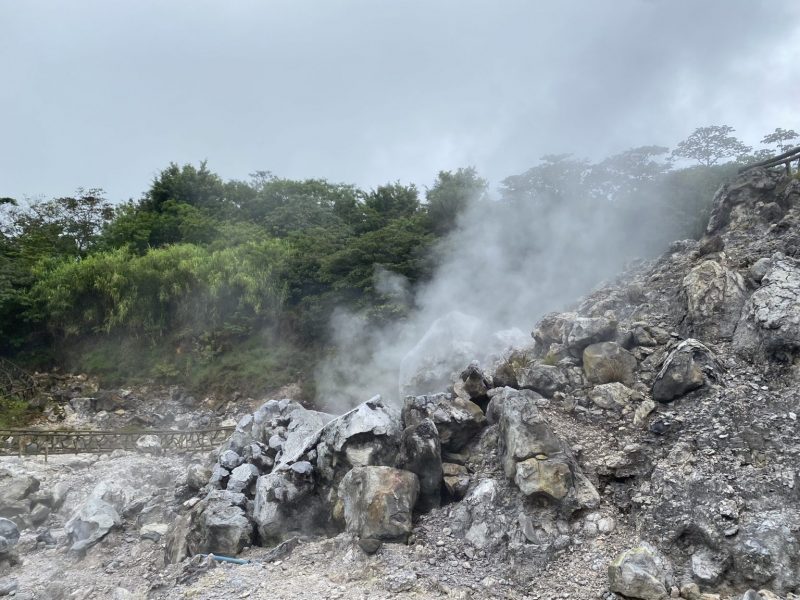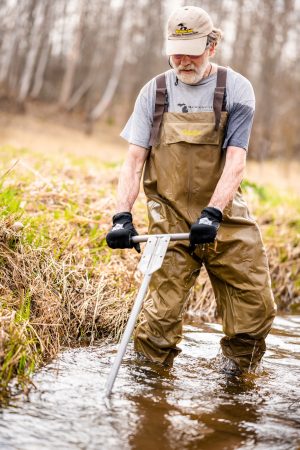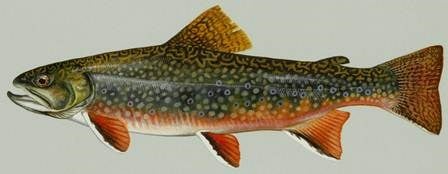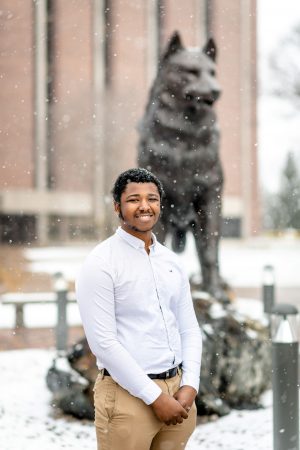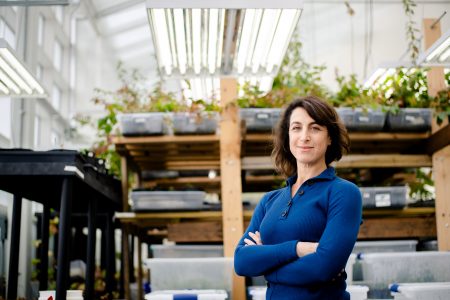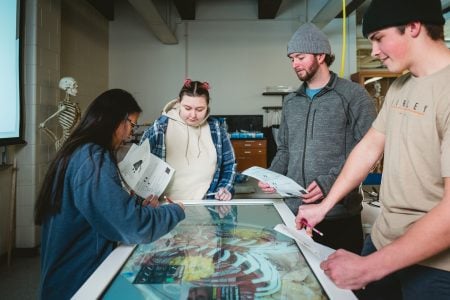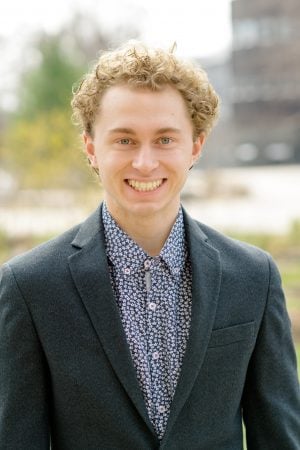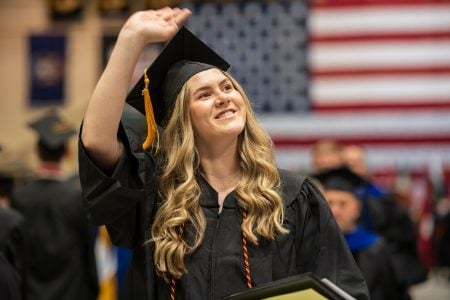As anyone who has attended Michigan Tech will tell you, engaging in a winter sport makes the long, dark, snowy days and challenging coursework bearable. For two BioSci students, mushing is the perfect winter diversion. The Michigan Tech Mushing Club is where they practice their sport. Both competed in the CopperDog races that took place March 3-5, 2023 in the Keweenaw Peninsula.
Alyssa Sarland Races in Her Second CopperDog
This year, Alyssa Sarlund, a fourth-year Biology major, took on the CopperDog80 with leads Agate and Heather. It was a big step up from the CopperDog25 last year. “Going from a one leg race to a two leg race I was definitely more nervous because I had a downtown start and there were quite a few people lining the gate at the start. Overall the course itself had a lot more hills and was more difficult. I trained for the second race longer than the first one, so I was pretty comfortable on the sled,” she said.
Alyssa was happy placing 8th out of 9 total participants in the 80. Her sled glided over the course in just under 9mph on average, for a total of 9 hours and 45 minutes. The 80 is a two day race and, although it was hard, she said it was a lot of fun. The second day was sunny with blue skies, and a bit warm for running but it made for a nice day to be out on the sled.
Previously, Alyssa volunteered with the CopperDog in 2021, too. “When I volunteered, I was set at a road crossing and helped other volunteers move a gate back and forth for mushers/snowmobilers to go the correct way on the trail,” she said.
Dipping Her Paws Into The CopperDog
Haley Marchese, a third-year Medical Laboratory Science major, raced in her first CopperDog. She tackled the 30 with her lead dogs Bud and Violet. It was truly an exciting debut in the CopperDog. “It was very nerve-racking at first because I had my family, friends, professors, and many others who came to the race start to support me and the other mushers. I was also a little nervous because I had a full team of yearlings (besides one of my leader dogs) running their first race. My race was also at night, so that played into my nerves a little at first too. I had a great start down the chute giving high fives to all the little kids watching and about a mile into the race my nerves calmed down and I started to have a lot of fun!” she said.
Haley placed 17th out of 20 participants, which is amazing considering her rookie status. Plus, the majority of her team, including one of her leaders, were yearlings running their first race. Like Alyssa, her team ran just under 9mph, making her total time 3.5 hours over the course of a day’s race.
Mushing Club Offers a Great Winter Diversion for Tech Students
The only collegiate sled dog club in the US, the Michigan Tech Mushing Club requires commitment. Members clean the kennels, feed and water the dogs, and train the dogs during the fall, winter, and spring. Members gain plenty of experience in caring for the dogs, learning about racing and the incredible dog athletes, and teaching others about the sport.
Alyssa enjoys getting away from a screen and taking in the fresh air for a few hours. “While running, it’s usually pretty quiet and all you hear is the dogs’ footsteps, and watching the sunset go down is a very unique experience that I have found to be truly surreal,” she says.
In the winter, new members can get on a sled for the first time. Those putting in time training and running the dogs get to race. Other members are content simply petting the dogs for stress relief from school. Others relax riding on a sled rather than driving it.
Haley enjoys introducing the sport of mushing to new members and/or community members. “I have so much fun teaching others how to harness a dog and how to drive a sled for the first time. I get a lot of joy seeing the thrill and excitement it brings to people who are doing it for the first time,” she says.
BioSci Mushers Get a Leg Up on a Career
Mushing lets students acquire important skills they will need in the years ahead. Haley says “I think mushing has helped me develop many soft skills that are important in a career in biology, medical lab science, veterinary, or medicine. Mushing has taught me a lot about patience, teamwork, building mutual respect, and critical thinking.”
“As you would expect mushing requires physical strength and stamina; however, over the past two years I’ve been involved in mushing, I’ve learned mushing also requires a lot of mental strength. There are times when you have a bad training run and you have to learn to be patient with the dogs and with yourself and persevere through the difficult moments. You also have to be able to critically think and act quickly if a challenging situation arises. Those are just a few of the skills and qualities that I’ve improved or learned from mushing that I can apply to my future career,” she says.
Mushing helped Haley to get a leg up in the classroom, too. “There are many times I’ve been able to connect what I’m learning in my biology classes with what I’ve learned from mushing. For example, I learned that some sled dogs suffer from a genetic form of cardiomyopathy, which is something I’ve learned a lot about in my upper-level biology courses and it so happens to align with the topic of my undergraduate research,” she added.
“I plan to apply to vet school, so knowing what it’s like working with animal athletes compared to house pets helps me apply concepts. Athletes’ body systems work differently; they tend to have more muscle and faster metabolisms,” explains Alyssa.
Haley is hoping to parley her degree and experience in the Mushing Club to medical school. “I will definitely have to take a break from mushing during that time, but I’m hoping once I get settled down that I would be able to get back involved in the sport even just as a hobby with a small recreational team of my own,” Haley said.
BioSci Mushers Find Their Pack
Haley found out about the club at K-Day last year. K-Day, short for Keweenaw Day, is an annual tradition at Michigan Tech held on the Friday of the week of Labor Day. It is a registered student organization fair with around 200 groups in attendance. It allows Tech students to find and connect with student organizations across campus they may want to join.
A Husky Swim Club friend introduced Alyssa to mushing. Alyssa’s friend drove her to the kennel and introduced her to the club. Alyssa and Haley run with a team from Tom Bauer’s kennel in the Otter River Sled Dog Training Center & Wilderness Adventures. They both agree the Otter River Kennel has done a great job of getting them out on a sled to train and race! Training for mushing can get crazy at times.
It’s Not Always Smooth Sledding For These BioSci Mushers, But They Overcome
Mushers form a great partnership with highly energetic dogs who love to run. And it is an amazing sight when you see a highly functioning sled-dog team moving rapidly down a snow-covered trail through the woods on a crisp winter night. But mishaps do occur. Once while training Alyssa’s team took a turn too early on the trail. The two lead dogs ended up running to either side of a tree, and the dogs wanted to keep running! Alyssa had to get the leads to turn around (no easy task when it comes to these focused dogs) to get back to where they were on the trail!
During this year’s race, Haley got herself into a sticky situation on the trail. While trying to pass another team she ended up losing her sled and the dogs. She had to run a little over a mile after them on foot with a broken headlamp to try to catch them; all the while hoping they got tangled or that a volunteer or another team caught them and stopped them. A fellow racer from the club caught up to Haley while she was still on foot and let her ride in their sled until they overtook her team. Despite this significant challenge, costing Haley a lot of time, she was still able to finish 17th!
In either case, the BioSci Mushers were able to get back on the trail and accomplish their goals. They’ve acquired valuable real-world skills. Clearly, this winter diversion keeps them on the trail leading to a successful future.
